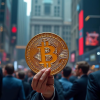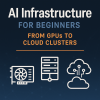In the not-so-distant past, education was the gateway to knowledge—the bridge between ignorance and enlightenment, structured and guarded by institutions that decided who could learn, what could be learned, and how it should be learned. Today, that world has been turned inside out. Thanks to the internet, digital archives, open-source projects, and virtual learning communities, access to knowledge has expanded beyond classroom walls and across socioeconomic and geopolitical boundaries. Information, once centralized, now flows freely in all directions, reshaping how humanity perceives learning itself.
This democratization of knowledge challenges the very foundation of traditional education. The idea that teachers are the sole authorities and students the passive receivers no longer holds true in an age where a motivated learner can access MIT lectures, research papers, or language tutorials from anywhere on Earth. Education has become less about ownership of information and more about the ability to navigate, interpret, and apply it critically.
As we enter an age of abundance rather than scarcity of knowledge, the educator’s role evolves into that of a mentor or curator—a guide who helps students make sense of complexity, discern credible sources, and connect interdisciplinary insights. The modern learner is no longer defined by attendance or grades but by adaptability, self-motivation, and curiosity. Knowledge, in this sense, has become a living ecosystem—fluid, participatory, and constantly renewing itself through collaboration and innovation.
Institutions that once thrived on exclusive access to knowledge now face pressure to redefine their value. Universities are transforming from places where degrees are awarded to hubs of lifelong learning and global cooperation. Credentials matter less when the proof of skill can be demonstrated through portfolios, projects, or peer-reviewed work shared online. In this new landscape, education is not a singular event but an ongoing dialogue with change—a continuous process of renewal that keeps individuals relevant and societies resilient.
This transformation also carries profound cultural implications. As barriers dissolve, education becomes a collective endeavor. Learners from different cultures exchange perspectives, broadening understanding and empathy. The power to teach and learn is increasingly decentralized, placing emphasis on equity, inclusivity, and open access. In doing so, education is no longer about separating the knowledgeable from the uninformed but about uniting the curious in a shared pursuit of wisdom.
The walls that once separated the classroom from the world are dissolving. As digital platforms expand and artificial intelligence reshapes the workplace, success is no longer measured by what facts one can memorize, but by how effectively one can think, communicate, and adapt. The educational systems of the past, designed for industrial efficiency, are being reimagined for creativity and purpose in a post-industrial era.
In this context, education must go beyond content delivery. It must cultivate the uniquely human capacities that machines cannot replicate—empathy, ethical reasoning, imagination, and the ability to connect diverse ideas. As learners engage directly with real-world problems—from climate change to social inequity—they discover that learning is not a preparation for life; it is life itself.
The modern learner oscillates between being a student, a teacher, and a creator. Open-source learning environments, online forums, and collaborative research networks allow individuals not only to consume knowledge but to produce and share it. This participatory model marks a fundamental shift from authority-driven to community-driven education. Learning is no longer about mastering static disciplines but about engaging with dynamic systems that demand critical reflection and moral responsibility.
Governments and institutions now face the challenge of making this new educational paradigm equitable. When knowledge is universally available, the digital divide becomes the new frontier of inequality. True democratization of learning requires not only access to resources but also the development of digital literacy and a sense of belonging in the global knowledge community. Education must thus become both inclusive and adaptive—embracing diversity while fostering a shared sense of human purpose.
As automation accelerates and data overwhelms, there’s a danger that information could replace insight. The future of education must resist this reduction. It should remain grounded in humanity’s enduring need for meaning and connection. The purpose of learning is not to compete with machines but to enhance what makes us human—to refine our wisdom, compassion, and creativity in ways that no algorithm can replicate.
Ultimately, the evolution of education in a world where knowledge is for everyone is an invitation to reimagine what it means to be educated. It is about nurturing citizens of a connected planet—individuals who are not only knowledgeable but thoughtful, not only skilled but wise, not only informed but inspired. As knowledge becomes a shared global resource, the true measure of education will be our collective ability to use it responsibly, ethically, and imaginatively, ensuring that the power of learning enriches every life and sustains the shared progress of humanity.









